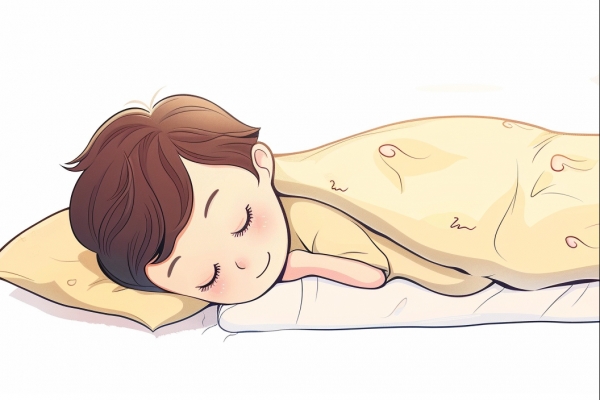Why do I still feel mentally unrefreshed despite sleeping for a long time?
Generally, feeling tired despite long sleep duration may be caused by disrupted sleep structure, poor pre-sleep habits, iron deficiency anemia, hypothyroidism, obstructive sleep apnea-hypopnea syndrome, or other conditions. If discomfort occurs, it is recommended to seek timely medical evaluation and treatment at a reputable hospital. Specific causes are analyzed as follows:
1. Disrupted Sleep Structure
Excessively long sleep can lead to imbalance between rapid eye movement (REM) sleep and deep sleep, increasing the proportion of light sleep. As a result, the brain cannot rest adequately, leading to fatigue upon waking. Maintain a consistent sleep duration of 7–8 hours per night, set a regular alarm, and avoid daytime naps exceeding 30 minutes.

2. Poor Pre-Sleep Habits
Drinking alcohol, consuming coffee, or using smartphones before bedtime can disrupt the sleep cycle and reduce sleep quality. Even with prolonged sleep, energy restoration remains inadequate. Avoid electronic devices one hour before bed, refrain from alcohol and caffeine, and consider drinking warm milk to promote sleep.
3. Iron Deficiency Anemia
Insufficient iron levels reduce hemoglobin's oxygen-carrying capacity, leading to cerebral hypoxia. Metabolism during sleep is impaired, resulting in fatigue and poor mental state upon waking. Under medical guidance, patients may take ferrous succinate tablets, ferrous fumarate capsules, or polysaccharide-iron complex capsules, and increase intake of iron-rich foods such as lean meat and spinach.
4. Hypothyroidism
Inadequate thyroid hormone secretion slows overall metabolism and reduces neural excitability. Energy metabolism is disturbed during sleep, causing persistent fatigue even after extended rest. Under medical supervision, levothyroxine sodium tablets, thyroid tablets, or L-thyroxine tablets may be prescribed, with regular monitoring of thyroid function.
5. Obstructive Sleep Apnea-Hypopnea Syndrome
Recurrent airway obstruction during sleep causes intermittent hypoxia and fragmented sleep patterns. Cerebral oxygen deprivation results in poor alertness and fatigue upon awakening. Treatment under medical guidance may include continuous positive airway pressure (CPAP) therapy, medications such as montelukast sodium tablets, aminophylline tablets, or doxofylline tablets. In severe cases, uvulopalatopharyngoplasty may be required.
In daily life, maintain a regular sleep schedule; create a quiet environment before bedtime; eat a balanced diet to ensure adequate nutrition; engage in moderate exercise to improve physical health; and undergo regular health check-ups to detect and treat diseases early.




